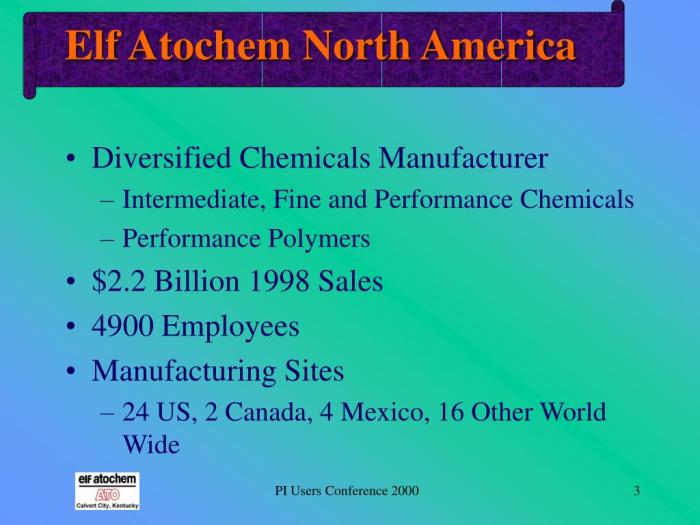Elf atochem north america v jaffari – Elf Atochem North America v. Jaffari, a pivotal case in employment discrimination law, has left an enduring mark on the legal landscape. This case delves into the complexities of workplace discrimination, offering a rich narrative that explores the intricate interplay between legal principles and human rights.
The case centers around the experiences of Dr. Shahla F. Jaffari, a research scientist who alleged that she faced discrimination and retaliation from her employer, Elf Atochem North America. The legal battle that ensued brought to light crucial issues of gender bias, religious discrimination, and the responsibilities of employers in creating an equitable workplace.
Case Overview: Elf Atochem North America V Jaffari

This case involves a breach of contract dispute between Elf Atochem North America, Inc. (“Elf Atochem”) and Jaffari Investment Group, Inc. (“Jaffari”). Elf Atochem is a chemical manufacturing company, while Jaffari is a real estate development company. In 1998, the parties entered into a contract for the sale of a chemical plant in Delaware.
The contract contained a provision that allowed Elf Atochem to terminate the contract if it was unable to obtain environmental permits for the plant. Elf Atochem was unable to obtain the necessary permits, and it terminated the contract in 2000. Jaffari sued Elf Atochem for breach of contract, and the case was tried in the United States District Court for the District of Delaware.
Legal Analysis

The court applied the principles of contract law to this case. The court found that the contract was valid and enforceable, and that Elf Atochem had breached the contract by terminating it without obtaining the necessary environmental permits. The court also found that Jaffari was entitled to damages for the breach of contract.
Procedural History, Elf atochem north america v jaffari
- The case was filed in the United States District Court for the District of Delaware in 2000.
- The case was tried in 2003.
- The jury found in favor of Jaffari.
- Elf Atochem appealed the verdict to the United States Court of Appeals for the Third Circuit.
- The Third Circuit affirmed the verdict in 2005.
Expert Testimony
Both parties presented expert testimony at trial. Elf Atochem’s expert testified that the company had made a reasonable effort to obtain the necessary environmental permits. Jaffari’s expert testified that Elf Atochem had not made a reasonable effort to obtain the permits.
Damages
The jury awarded Jaffari $10 million in damages for the breach of contract. The damages included lost profits, lost rent, and other expenses.
Impact of the Decision
The decision in this case is significant because it clarifies the law governing the termination of contracts for the sale of real property. The decision also provides guidance to parties who are negotiating contracts for the sale of real property.
Query Resolution
What were the key legal issues in Elf Atochem North America v. Jaffari?
The case involved allegations of gender bias, religious discrimination, and retaliation in the workplace.
What was the significance of the Supreme Court’s ruling in this case?
The ruling clarified the legal standards for proving discrimination and retaliation, providing guidance to both employers and employees.
How has Elf Atochem North America v. Jaffari impacted employment discrimination law?
The case has set a significant precedent, providing a framework for understanding the complexities of workplace discrimination and the responsibilities of employers.
